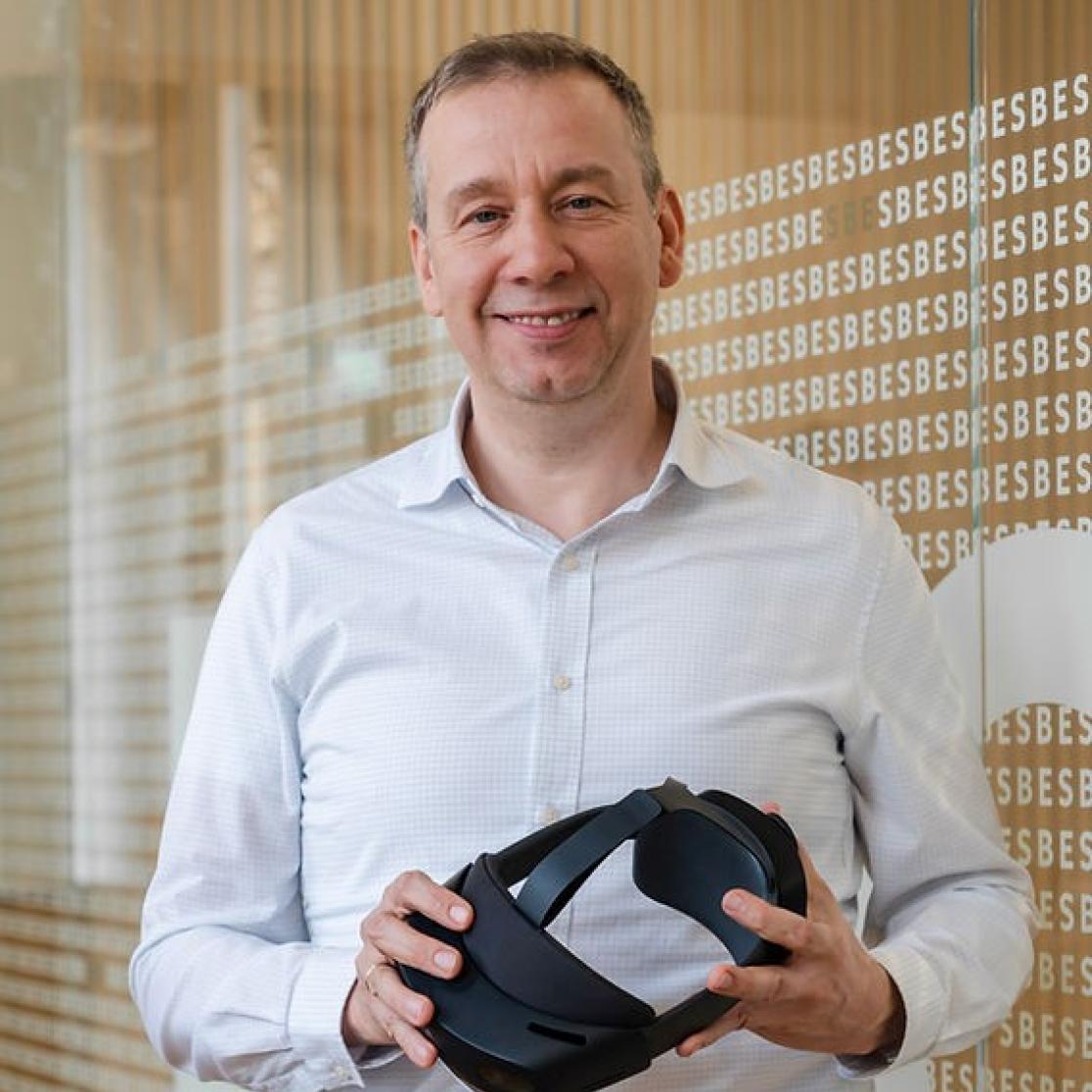EU grant to co-create pioneering research in ethical AI for healthcare
Prof. Dr. Dominik Mahr from the School of Business and Economics (SBE), is a main investigator of a consortium that has been awarded a €2.3 million Marie Skłodowska-Curie Actions training network grant in April 2025 for the project “JustHealth: Building a Decolonized Ethics and Governance Framework”. Prof. Dr. Gaby Odekerken-Schröder also contributes to the project, further strengthening the School of Business and Economics’ involvement in this initiative. This significant grant will fund two PhD positions at Maastricht University, both focusing on co-creation as a cornerstone of ethical and inclusive AI in healthcare.
The initiative brings together five partners, including Maastricht University (School of Business and Economics), Università degli Studi di Macerata, Katholieke Universiteit Leuven, Stichting Radboud Universitair Medisch Centrum, and the University of Cape Town, alongside a dozen associate partners such as Meandergroep Zuid Limburg and Altuition.
Addressing ethical challenges in AI healthcare
Artificial Intelligence (AI) holds enormous promise for healthcare, but it also presents complex ethical challenges. AI systems can inadvertently discriminate against vulnerable populations, amplifying existing inequalities and limiting access to healthcare. Current ethics and governance frameworks often fail to account for social justice perspectives outside the Western context, a problem the JustHealth project aims to tackle.
Maastricht University (SBE) will focus on co-creation to support ethical and inclusive AI in healthcare. The team will work with stakeholders to align foundation models and AI applications with user perspectives, develop ecosystem and value maps, and create user-centered co-creation tools. They will also design training materials and build learning communities that combine non-digital and advanced digital methods, including online platforms and virtual reality. This work will ensure that ethical, decolonized, and trustworthy AI solutions are co-developed and applicable across diverse international contexts.
Training the next generation of responsible researchers
The project will also launch the EU’s first doctoral programme to embed social justice principles in AI research and practice. Eight doctoral candidates will gain transdisciplinary skills and exposure to leading organisations in the EU, South Africa, and the US, preparing them to tackle the complex challenges of ethical AI in healthcare. The School of Business and Economics will host two PhD positions within this programme.
A wonderful example of how true interdisciplinary collaboration unfolds—global in scope, rooted in healthcare, and powered by co-creation to engage diverse stakeholders in tackling a societally relevant challenge.
Prof. Dr. Dominik MahrCelebrating innovation and impact
The grant marks a significant milestone for SBE research, showcasing the School’s commitment to impactful, socially responsible innovation.
JustHealth not only seeks to ensure AI technologies are fair and trustworthy but also aims to contribute to just healthcare at both local and global levels, setting a new benchmark for research and education in AI ethics.

Also read
-
Despite a less tight labour market no end to shortages in healthcare, education, and tech
Interesting new findings in the report 'The Labour Market by Education and Occupation until 2030' from the Research Centre for Education and the Labour Market (ROA) at Maastricht University.
-
Maastricht University ranked #3 worldwide and #1 in Europe in 2025 Better World MBA Ranking
We are incredibly proud to share that the MBA programmes of Maastricht University School of Business and Economics’ executive branches, MSM and UMIO, have once again been recognised among the very best sustainable business MBA programmes worldwide. In the 2025 Better World MBA Ranking by Corporate...
-
Young people in higher education mainly choose based on their interests. A better link with labour market opportunities is needed.
Against the backdrop of structural labour market shortages, it is of social importance that young people choose courses that not only match their interests and talents but also lead to occupations with good employment prospects and social value, particularly in sectors such as healthcare, education...